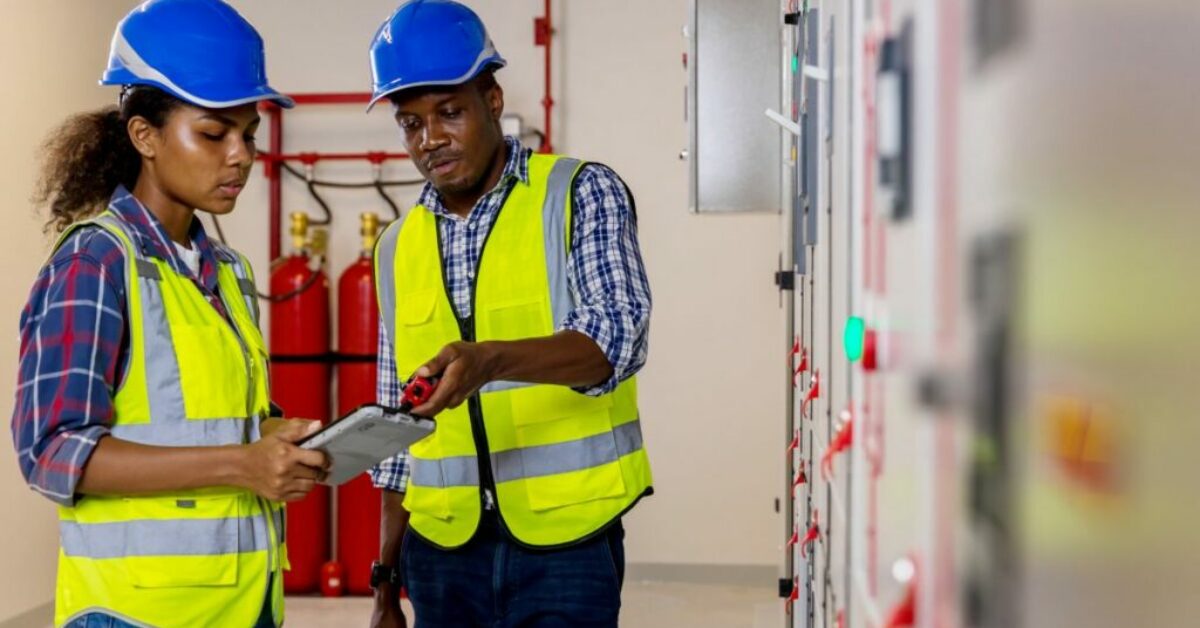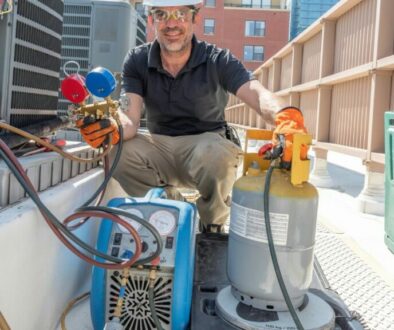Certified Energy Auditor Exam
The Certified Energy Auditor exam is a standardized test taken by individuals hoping to gain a credential in the field of energy auditing. This credential is awarded to individuals who have adequately demonstrated their knowledge and abilities related to conducting energy audits and identifying energy-saving opportunities. In this article, we will guide you through the process of understanding, preparing for, and taking the Certified Energy Auditor exam, as well as the career opportunities that come with being a Certified Energy Auditor.
Skills and Knowledge Required for the Exam
The Certified Energy Auditor exam is a comprehensive test that covers a wide range of topics related to energy auditing. Some of the key skills and knowledge areas that you will need to master include:
- Energy auditing techniques and methodologies
- Building systems and energy usage patterns
- Energy efficiency technologies and practices
- Measurement and verification of energy savings
- Energy regulations and standards
In addition to these technical skills, you will also need to have strong communication and interpersonal skills. As a Certified Energy Auditor, you will be working closely with clients and stakeholders to identify energy-saving opportunities and develop energy management plans. Therefore, you will need to be able to explain complex technical concepts in a clear and concise manner and build strong relationships with your clients.
Preparing for the Exam
If you are interested in becoming a Certified Energy Auditor, there are several steps you can take to prepare for the exam. One of the best ways to get started is to enroll in a training program that is specifically designed to prepare you for the exam.
There are many different training programs available, both online and in-person, that can help you develop the skills and knowledge you need to pass the exam. These programs typically cover all of the key topics that are tested on the exam and provide you with hands-on experience in conducting energy audits.
In addition to formal training programs, you can also prepare for the exam by studying on your own. There are many resources available online, including study guides, practice exams, and technical manuals, that can help you prepare for the exam.
Taking the Exam
The Certified Energy Auditor exam is a four-hour test that consists of 130 multiple-choice questions. The exam is administered by the Association of Energy Engineers (AEE) and is available at testing centers around the world.
To pass the exam, you will need to score at least 70% on the test. If you do not pass the exam on your first attempt, you can retake the exam after a waiting period of 30 days. However, keep in mind that there is a fee for each exam attempt, so it is important to prepare thoroughly before taking the exam.
Once you have passed the exam, you will be awarded the Certified Energy Auditor credential by the AEE. This credential is recognized around the world as a symbol of excellence in the field of energy auditing and can help you advance your career and increase your earning potential.
Preparing for the Certified Energy Auditor Exam
Study Materials and Resources
Preparing for the Certified Energy Auditor exam is an important step in advancing your career in energy auditing. Once you have determined that you are eligible to take the exam, it is essential to prepare thoroughly for it. There are various study materials and resources available to help you prepare for the exam, including study guides, practice exams, and workshops. However, your choice of study materials will depend on your learning style and preferences.
One of the best ways to prepare for the exam is to enroll in a Certified Energy Auditor training course. These courses are designed to provide you with the knowledge and skills you need to pass the exam. They cover all the topics that are included in the exam, and they also provide you with practice exams and study materials.
If you prefer self-study, you can purchase study guides and practice exams online. These resources are designed to help you identify your strengths and weaknesses and focus on areas where you need improvement. They also provide you with tips and strategies for success.
Exam Content and Format
The Certified Energy Auditor exam is a four-hour, computer-based test consisting of 130 multiple-choice questions. The exam covers a range of topics, including energy auditing fundamentals, energy accounting and economics, building envelope, mechanical systems, electrical systems, renewable energy, and energy measurements and instrumentation.
It is essential to have a good understanding of all these topics to pass the exam. Therefore, it is recommended that you study each topic thoroughly and practice answering questions related to each topic.
Tips and Strategies for Success
Preparing for the Certified Energy Auditor exam can be challenging, but with the right tips and strategies, you can succeed. Here are some tips and strategies to help you prepare for the exam:
- Start studying early to give yourself enough time to prepare. Cramming at the last minute is not effective.
- Take practice exams to identify your strengths and weaknesses. This will help you focus on areas where you need improvement.
- Focus on areas where you struggle, and give them extra attention. This will help you improve your understanding of the topic.
- Use flashcards to memorize important concepts and formulas. This will help you recall information quickly during the exam.
- Stay calm and focused during the exam, and carefully read each question before answering. This will help you avoid making careless mistakes.
By following these tips and strategies, you can increase your chances of passing the Certified Energy Auditor exam and advancing your career in energy auditing.
Taking the Certified Energy Auditor Exam
As the world becomes increasingly aware of the need to reduce energy consumption and promote sustainable practices, the demand for Certified Energy Auditors has grown. The Certified Energy Auditor (CEA) exam is designed to test an individual’s knowledge and skills in the field of energy auditing. If you are interested in becoming a Certified Energy Auditor, here is what you need to know about the exam.
Exam Registration Process
Before registering for the exam, it is important to ensure that you meet the eligibility requirements. You must have a minimum of three years of experience in energy auditing or a related field, as well as a bachelor’s degree or higher in engineering, architecture, or a related field. Once you feel confident in your knowledge and abilities, it is time to register and take the exam.
The registration process requires you to fill out an application form, provide proof of education and professional experience, and pay an exam fee. You can register for the exam online or by phone. Once your application has been approved, you will receive an email with instructions on how to schedule your exam.
What to Expect on Exam Day
On the day of the exam, arrive early at the testing center and bring a valid ID. The testing center will provide you with a computer, headphones, and scratch paper. You will have four hours to complete the exam, which consists of 130 multiple-choice questions. The questions cover a range of topics, including energy auditing fundamentals, building systems and energy use, and energy accounting and economics.
It is important to note that the exam is computer-based and adaptive, meaning that the difficulty of the questions will adjust based on your responses. This ensures that the exam accurately assesses your knowledge and skills in the field of energy auditing. You can take breaks during the exam, but the timer will not stop. Remember to stay calm, focused, and hydrated.
Exam Scoring and Results
The Certified Energy Auditor exam is scored on a scale of 200 to 800, with a passing score of 70%. You will receive your exam results immediately upon completion of the exam. If you pass, you will receive your Certified Energy Auditor credential within six weeks.
Obtaining your CEA credential can open up many opportunities in the field of energy auditing. Certified Energy Auditors are in high demand in industries such as construction, engineering, and consulting. In addition to demonstrating your knowledge and skills in the field, obtaining your CEA credential can also increase your earning potential.
Overall, taking the Certified Energy Auditor exam requires dedication, hard work, and a strong understanding of energy auditing fundamentals. However, the rewards of obtaining your CEA credential can be well worth the effort.
Maintaining Your Certified Energy Auditor Credential
Being a Certified Energy Auditor is a great achievement, but it’s important to remember that it’s not a one-time accomplishment. In order to maintain your credential, you need to stay up-to-date with the latest developments in the energy auditing industry.
Continuing Education Requirements
To maintain your Certified Energy Auditor credential, you need to complete 24 continuing education units within a three-year cycle. This may seem like a lot, but there are many ways to earn these units. Attending workshops, webinars, courses, conferences, and other approved training programs are just a few examples of how you can earn continuing education units.
Not only will these opportunities help you meet your continuing education requirements, but they will also provide you with valuable knowledge and skills that you can use in your work as an energy auditor. By staying up-to-date with the latest technologies, trends, and regulations in the industry, you can ensure that you are providing your clients with the best possible service.
Renewal Process and Fees
In order to renew your Certified Energy Auditor credential, you need to pay a renewal fee and submit proof of your continuing education units. The renewal fee is a small price to pay for the benefits that come with maintaining your credential.
You can renew your credential online or by mail. Whichever method you choose, be sure to submit your renewal application and continuing education units in a timely manner to avoid any lapses in your certification.
Staying Up-to-Date in the Energy Auditing Industry
As a Certified Energy Auditor, it is crucial to stay up-to-date with the latest technologies, trends, and regulations in the energy auditing industry. There are many ways to do this, including networking with other professionals, attending conferences and workshops, and subscribing to industry publications and newsletters.
Networking with other professionals can be a great way to learn about new developments in the industry and to share your own experiences and knowledge. Conferences and workshops provide opportunities to hear from experts in the field and to learn about new technologies and techniques. Subscribing to industry publications and newsletters can help you stay informed about the latest trends and regulations.
By taking advantage of these opportunities, you can ensure that you are providing your clients with the best possible service and that you are staying ahead of the curve in the energy auditing industry.
Career Opportunities for Certified Energy Auditors
As the world becomes more conscious of the impact of energy consumption on the environment, the demand for Certified Energy Auditors is on the rise. As a Certified Energy Auditor, you can work for various types of organizations, including consulting firms, engineering firms, utility companies, and government agencies, among others. Your job responsibilities may include performing energy audits, identifying energy-saving opportunities, and implementing energy-saving measures. You may also be involved in project management, budgeting, and client communication.
The role of a Certified Energy Auditor is crucial in helping organizations reduce their energy consumption and costs. By identifying areas of energy waste and implementing energy-saving measures, you can help organizations become more sustainable and environmentally friendly. As a result, you will be contributing to the global effort to combat climate change and protect the planet for future generations.
Industries and Sectors in Need of Energy Auditors
The demand for Certified Energy Auditors is increasing as more organizations become aware of the benefits of energy efficiency. You can find job opportunities in various industries, including healthcare, education, hospitality, retail, manufacturing, and government sectors, among others.
In the healthcare industry, hospitals and clinics require large amounts of energy to operate medical equipment, lighting, and HVAC systems. By conducting energy audits and implementing energy-saving measures, you can help healthcare organizations reduce their energy consumption and costs, while maintaining high-quality patient care.
In the education sector, schools and universities require energy for lighting, heating, and cooling classrooms and other facilities. By identifying areas of energy waste and implementing energy-saving measures, you can help educational institutions reduce their energy costs and contribute to a more sustainable future.
In the hospitality industry, hotels and resorts require energy for lighting, heating, cooling, and running various amenities. By conducting energy audits and implementing energy-saving measures, you can help hospitality organizations reduce their energy consumption and costs, while maintaining high-quality guest services.
In the retail industry, stores and shopping centers require energy for lighting, heating, cooling, and running various equipment. By identifying areas of energy waste and implementing energy-saving measures, you can help retail organizations reduce their energy costs and contribute to a more sustainable future.
In the manufacturing industry, factories and plants require large amounts of energy to operate machinery and equipment. By conducting energy audits and implementing energy-saving measures, you can help manufacturing organizations reduce their energy consumption and costs, while maintaining high-quality production standards.
In the government sector, federal, state, and local government agencies require energy for lighting, heating, cooling, and running various facilities. By identifying areas of energy waste and implementing energy-saving measures, you can help government organizations reduce their energy costs and contribute to a more sustainable future.
Salary Expectations and Growth Potential
The salary of a Certified Energy Auditor varies depending on the location, industry, and years of experience. According to a survey by the Association of Energy Engineers, the median salary for a Certified Energy Manager in the United States is $84,000. However, with additional certifications and experience, you can expect to earn a higher salary.
The growth potential for Certified Energy Auditors is also high, as the demand for energy efficiency continues to increase. As organizations become more conscious of their energy consumption and costs, the need for Certified Energy Auditors will continue to grow. Additionally, as technology advances, new opportunities for energy efficiency and sustainability will arise, providing even more job opportunities for Certified Energy Auditors.
If you are interested in pursuing a career as a Certified Energy Auditor, there are many resources available to help you get started. The Association of Energy Engineers offers various certifications and training programs to help you gain the knowledge and skills needed to succeed in this field. With dedication and hard work, you can build a successful career as a Certified Energy Auditor and make a positive impact on the environment and society.
Obtaining a Certified Energy Auditor credential can be a fantastic career move for individuals who are passionate about energy efficiency. By demonstrating their knowledge and abilities, Certified Energy Auditors can help organizations reduce their environmental impact and save money on their utility bills. Whether you are just starting your career or looking to advance it, the Certified Energy Auditor exam can open doors to many exciting career opportunities.




